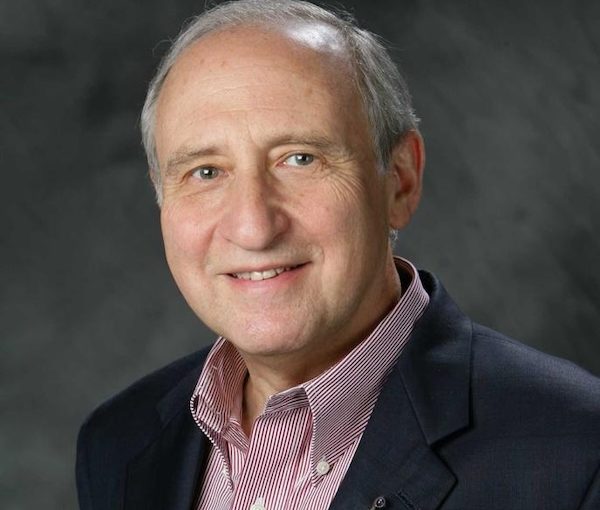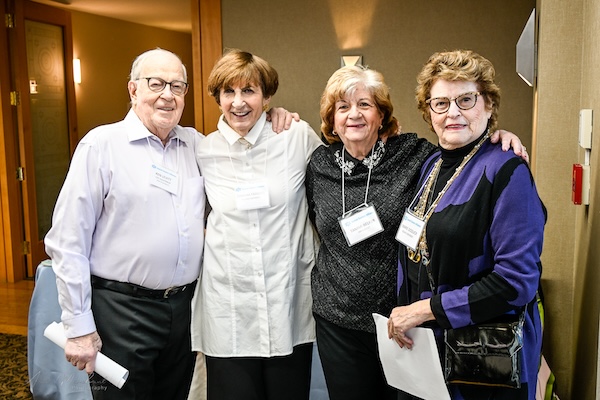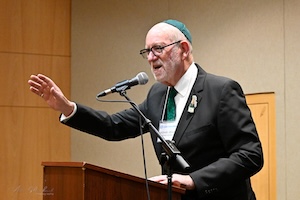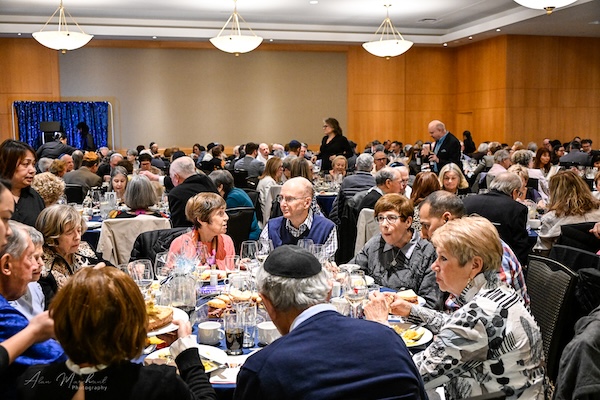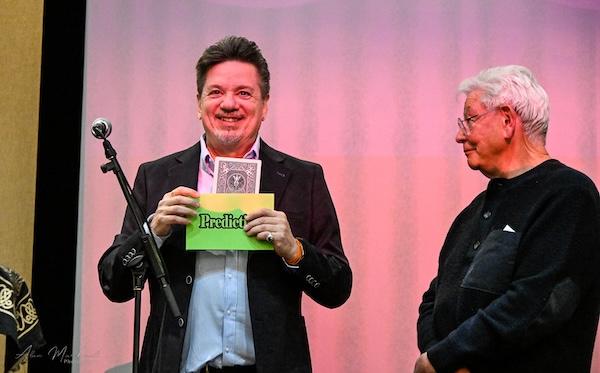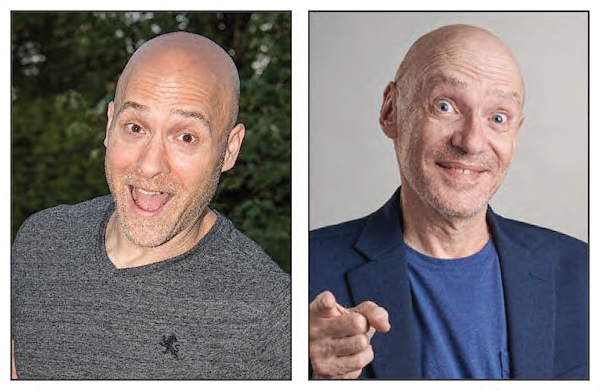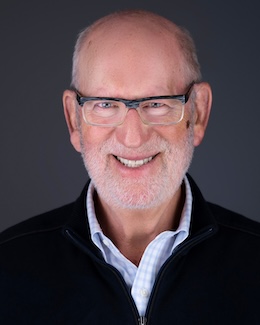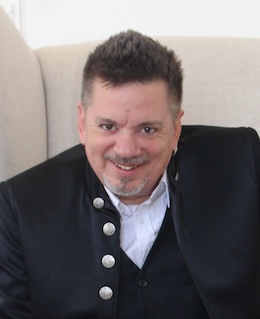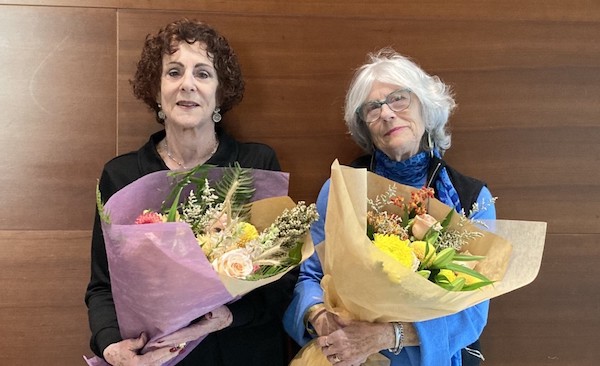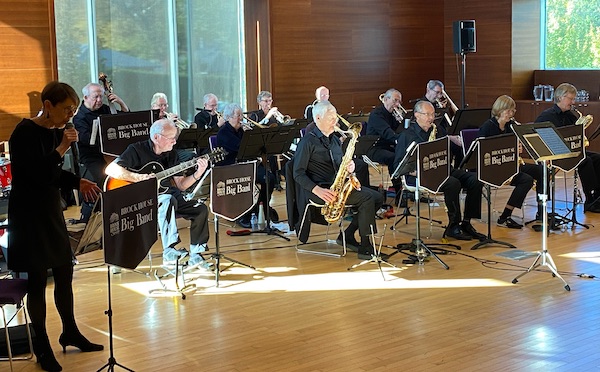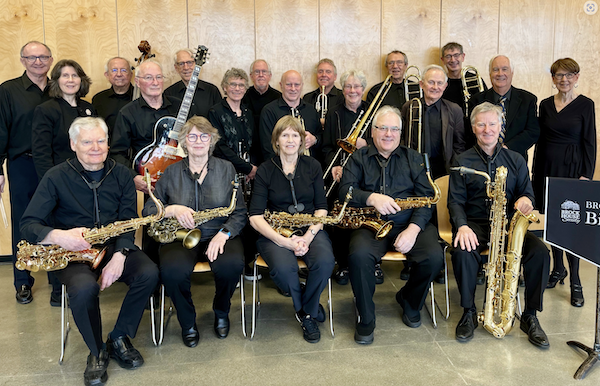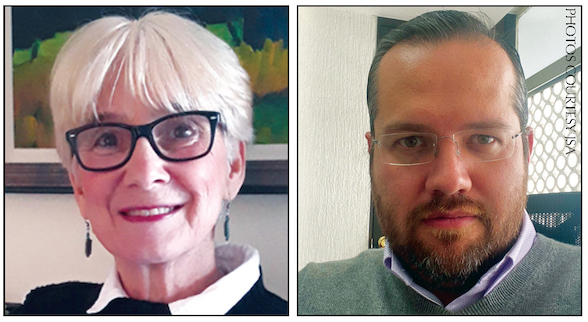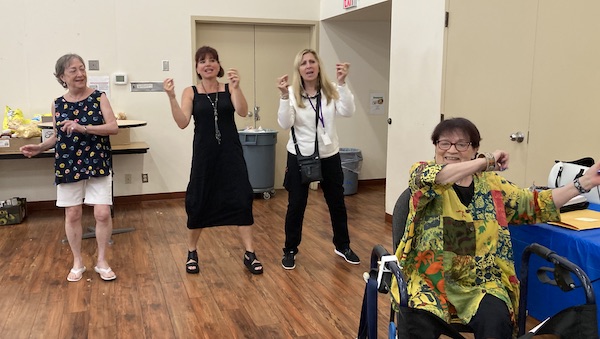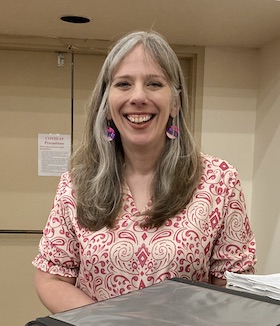Ben Shneiderman was the featured speaker at Jewish Senior Alliance’s Spring Forum May 26. (photo from hai.stanford.edu)
On Sunday, May 26, the Jewish Seniors Alliance presented their annual Spring Forum. Featured speaker Ben Shneiderman spoke about his family’s influence on journalism, photojournalism and the development of human-computer interactions.
Shneiderman was introduced by Gyda Chud, a past president of JSA and chair of the program committee. He told those gathered at the Peretz Centre for Secular Jewish Culture about his family history, keeping the audience enthralled throughout.
Shneiderman is an emeritus distinguished professor of computer science at the University of Maryland. He has received six honorary doctorates in recognition of his pioneering contributions to human-computer interaction and information visualization. He has published more than 20 books, most recently, Human-Centered AI (Oxford University Press, 2022), which won the Association of American Publishers award in the computer and information sciences category.
However, Shneiderman did not begin with his own cultural contributions, but with those of his parents, Samuel and Eileen (née Szymin) Shneiderman. They began their journalistic partnership in Warsaw, writing for the many Yiddish publications that existed then. Their lives mirrored the turbulent events of those years. They moved from Warsaw to Paris, where they continued to contribute to Yiddish publications. They did major reporting from Spain during the Spanish Civil War. In 1938, Samuel published a collection of his work on the Spanish Civil War in Yiddish, titled Krig in Shpanyen: Hinterland. This coverage earned him the title of being “the first Yiddish war reporter.” This book was later published in Polish and then in Spanish. It will appear soon for the first time in English as Journey through the Spanish Civil War, translated by Deborah Green and published by the Yiddish Book Centre’s White Goat Press.
In 1940, with the help of the Yiddish press in New York, the family was able to immigrate to the United States and escape the war. Samuel worked with the Yiddish press and published many other books, including editing The Diary of Mary Berg, by an American woman who was incarcerated in the Warsaw Ghetto and described harrowing details of life there. Samuel wrote of the Kielce Pogrom in Between Fear and Hope. The Weitzman National Museum of American Jewish History has two virtual exhibits: one on Samuel and Eileen’s partnership, and the second on Ben Shneiderman’s computing contributions and the photojournalism of David Seymour, Eileen’s brother, who was known as Chim.
Chim’s humanistic style of reporting influenced modern visual storytelling. One of his photos, related to the war, may have inspired a painting by Picasso. Chim’s war photos were widely published in many magazines and journals, and he became known for his unique photographs of children who had become orphans during the conflict. He also took photos of many celebrities, such as Audrey Hepburn, Maria Callas, Ingrid Bergman, and many others. Some of these images were published in popular media such as Life magazine.
Chim took some interesting shots of life in the state of Israel in the early 1950s. Of note is a photo of a wedding taken outdoors, possibly in the Judaean Hills. The chuppah is torn in a few places and one side is being held up by a rifle and a pitchfork. Chim was killed while photographing the Suez Crisis for Newsweek in 1956. He was 45 years old.
Throughout the presentation, Shneiderman replied to questions and comments, Marilyn Berger, a past president of JSA, thanked him for his inspiring words.
The next JSA event is A Summer Afternoon of Music on June 24, featuring a live concert of classical music, showtunes and Jewish songs by Trio du Souvenir – Rudy Rozanski (piano), Yu Tsai (cello) and Arnold Kobiliansky (violin). Co-sponsored with the Kehila Society and Congregation Beth Tikvah, the concert and lunch take place at Beth Tikvah. To attend, RSVP by June 21 to Toby Rubin, [email protected] (lunch is $15).
Shanie Levin is a Jewish Seniors Alliance Life Governor. She is also on the editorial committee of Senior Line magazine.

